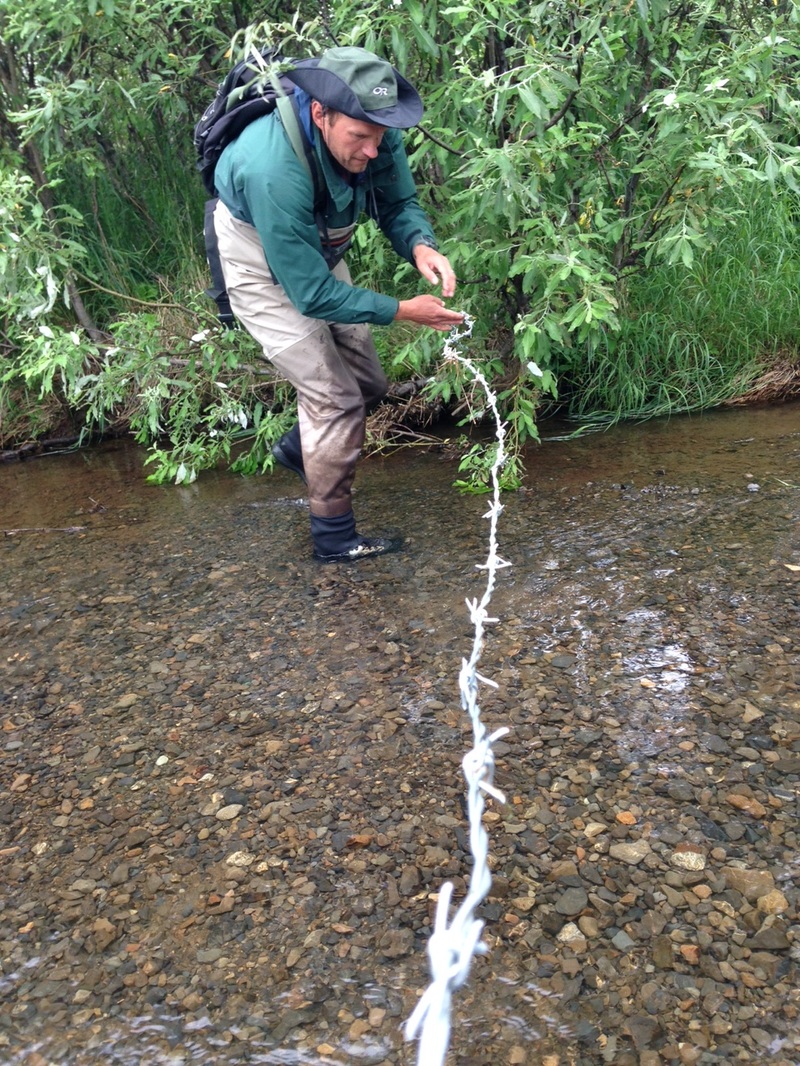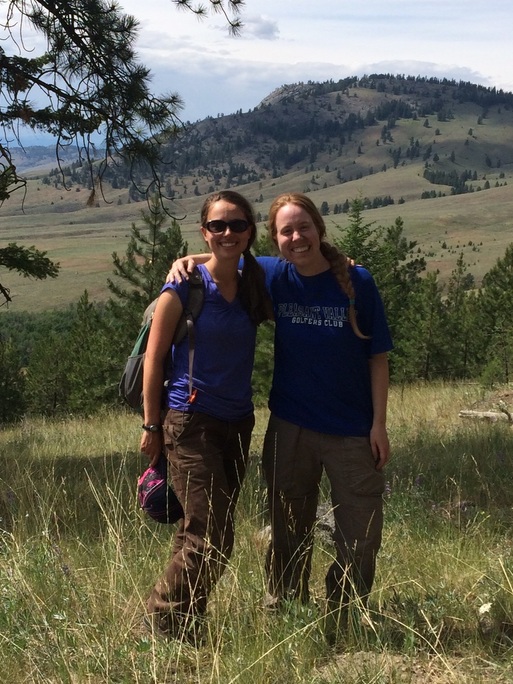by Aaron Wirsing
For the fourth year running, I've joined professor Tom Quinn (SAFS) at Lake Aleknagik in southwestern Alaska to sample brown bears exploiting the legendary Bristol Bay sockeye salmon run. Our study is noninvasive, relying on barbed wires strung across small spawning streams (see picture) to collect hair samples from passing bears. We then send the hair samples to Professor Lisette Waits, another of our collaborators at the University of Idaho, for individual genoptying, enabling us to determine how many bears use each stream. As we add more years to the investigation, we'll be able to ask a variety of exciting questions, including whether individual bears return to the same stream each year and if there is matrilineal transmission of foraging behavior (i.e., do cubs match the spatial hunting patterns of their mothers?). For now, we're off to check the wires!
For the fourth year running, I've joined professor Tom Quinn (SAFS) at Lake Aleknagik in southwestern Alaska to sample brown bears exploiting the legendary Bristol Bay sockeye salmon run. Our study is noninvasive, relying on barbed wires strung across small spawning streams (see picture) to collect hair samples from passing bears. We then send the hair samples to Professor Lisette Waits, another of our collaborators at the University of Idaho, for individual genoptying, enabling us to determine how many bears use each stream. As we add more years to the investigation, we'll be able to ask a variety of exciting questions, including whether individual bears return to the same stream each year and if there is matrilineal transmission of foraging behavior (i.e., do cubs match the spatial hunting patterns of their mothers?). For now, we're off to check the wires!
Photo by Dean Adams



 RSS Feed
RSS Feed